WMU Land Acknowledgement Workshop Fills Community Center
“Land acknowledgments bring awareness and recognition to our Ancestors, and it’s a way for us to preserve them in our minds and our hearts,” said President of Western Michigan University (WMU) Native American Student Organization (NASO) Shabanaa Bush (Match-E-Be-Nash-she-wish Band of Pottawatomi Indians Tribal Citizen).
On April 8, 2024, WMU’s Osher Lifelong Learning Institute (OLLI) hosted a workshop on Land Acknowledgement: Lessons in Respect & Responsibility for Non-Natives, on the ancestral homelands of the NHBP Tribe, at the Pine Creek Community Center.
Drawing much interest, this unique, interactive workshop was packed with attendees and even had a waiting list, as many were eager to participate in this vital conversation about the appropriate way to acknowledge the land and its original caretakers.
Facilitated by Author/Journalist Leeanne Seaver, this workshop included a panel discussion exploring the etiquette and ethos of forming a land acknowledgment. It was an opportunity to share how individuals, event hosts, and organizations can intentionally recognize the history of our region and the Indigenous people who have lived here for centuries in a respectful and meaningful way.
The panel discussion was co-led by Pokagon Band of Potawatomi Tribal Council Secretary Sam Morseau, Bush and NASO member Skyler Wolverton (Pokagon Band of Potawatomi Tribal Citizen).
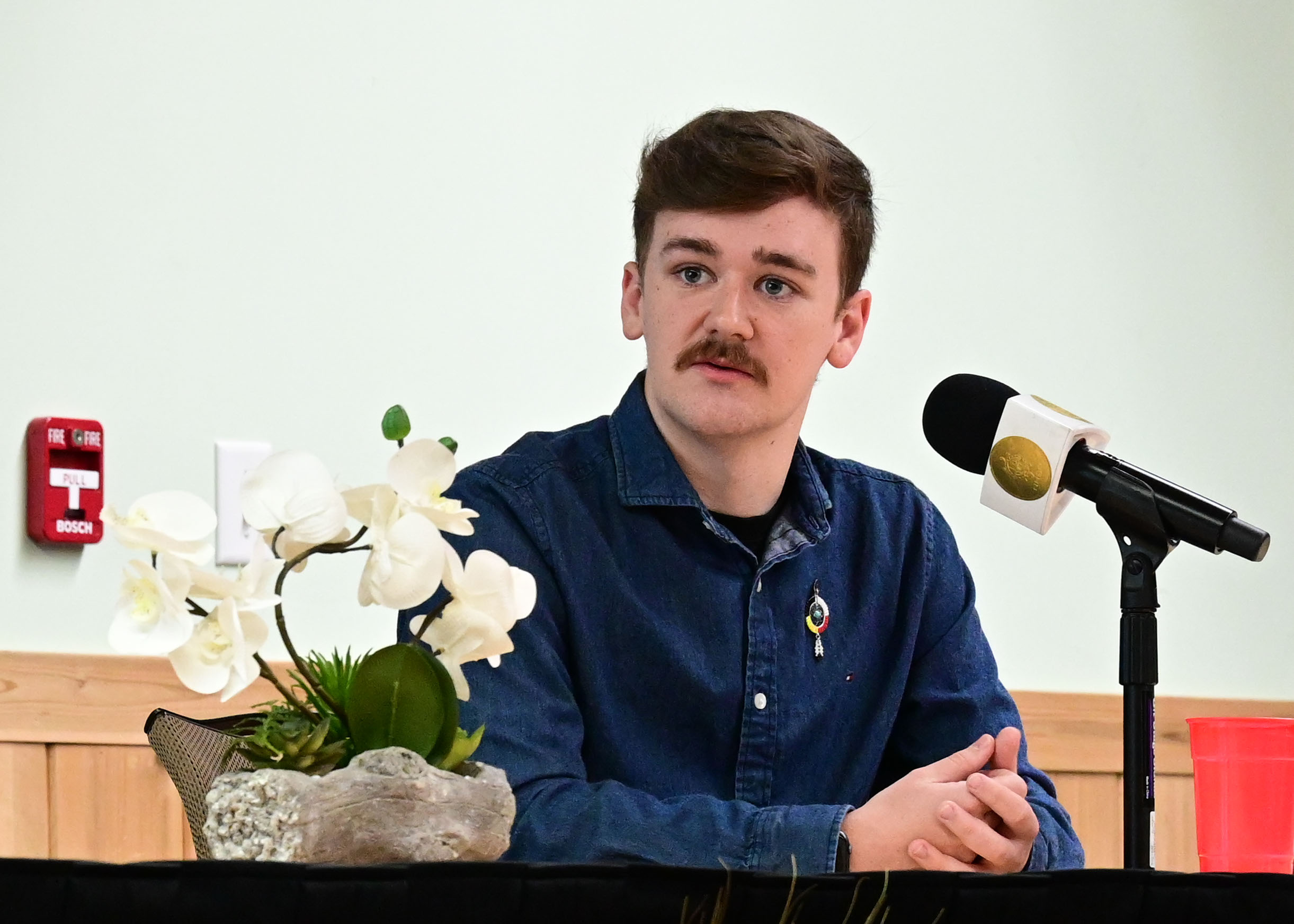
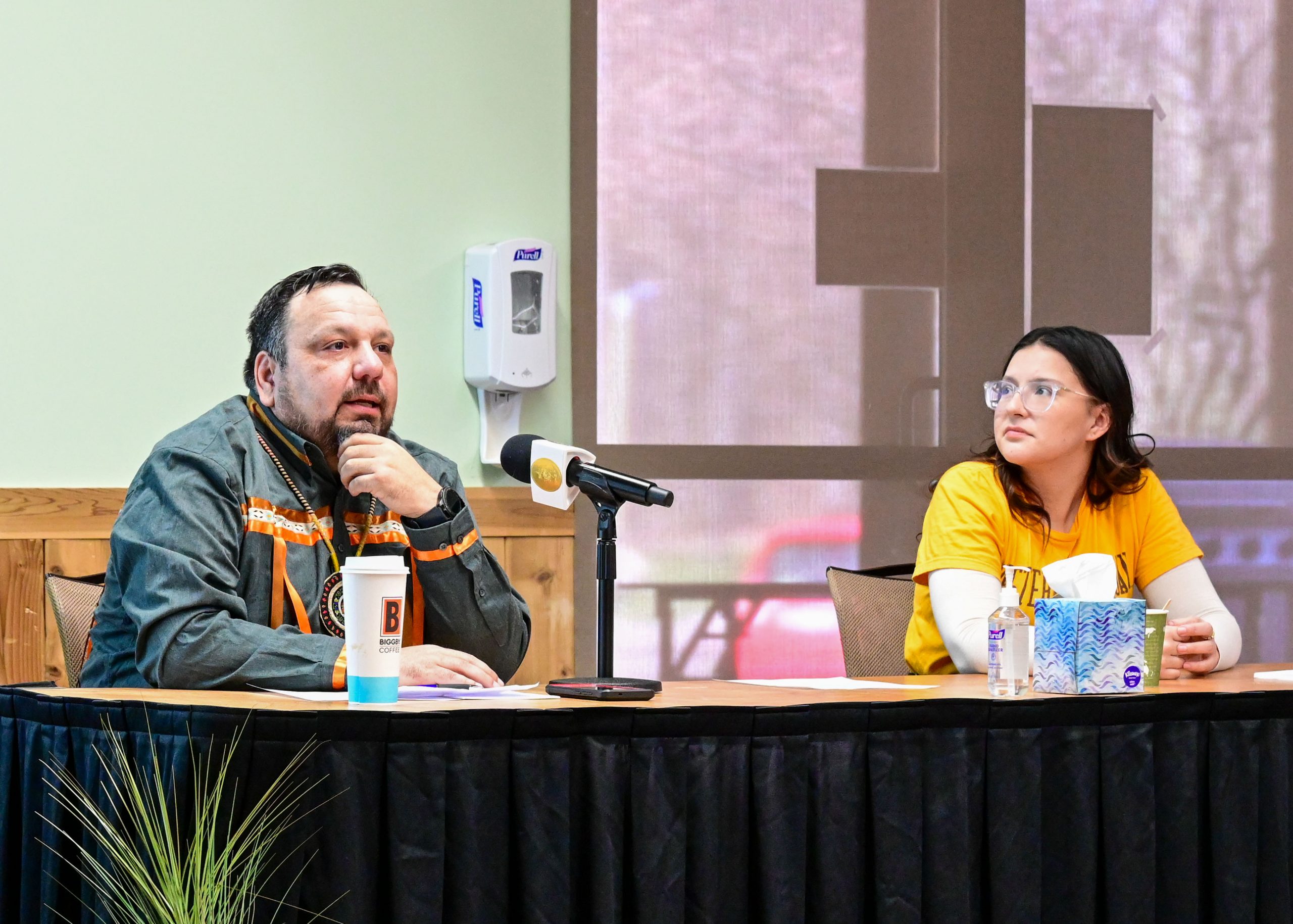
“Whose land are we acknowledging?” Seaver asked the audience to open the robust panel discussion.
“In Native Cultures, we see the land as not inherently ours. We don’t own the land. We share it with Mother Earth. Our invocations are meant to pay respect, which is why we begin all cultural events with an invocation to pay respect to our land,” said Bush.
Morseau echoed this sentiment as he explained how Tribal Communities begin each gathering with an invocation and prayer delivered by an Elder, “which honors your direction, your land, the traditional homelands you are on, not only thinking about the past, but also future generations.”
Highlighted were the differences in the perception of land ownership between Indigenous and non-Indigenous cultures. In many Indigenous communities, wealth is measured not by what you own, but by what you can give back or how well you take care of the community. This contrasts with the non-Native focus on individual ownership and financial wealth, underscoring the deeper values and principles that guide Indigenous relationships with the land.
“Where and how does a non-Native person find out where to even start with a land acknowledgment?” asked one participant.
“You should approach the conversation from a place of relationship building. You use it as an opportunity to learn more. This is something that needs to be established with intention behind it,” said Wolverton.
Those currently in the process of forming a land acknowledgment for their organization or who desire to establish a relationship with a Tribal government to learn more about the ancestral homelands their entity is housed on, should take a look at where that land is and “start with reaching out to the nearest Tribal Government to the land you seek to form a land acknowledgment for,” said Morseau. Connecting with the Tribal Historic Preservation Office (THPO) or the Culture Department would be the best way to establish that relationship.
Seaver then posed the question, “Who should write the land acknowledgment, and what should it include?”
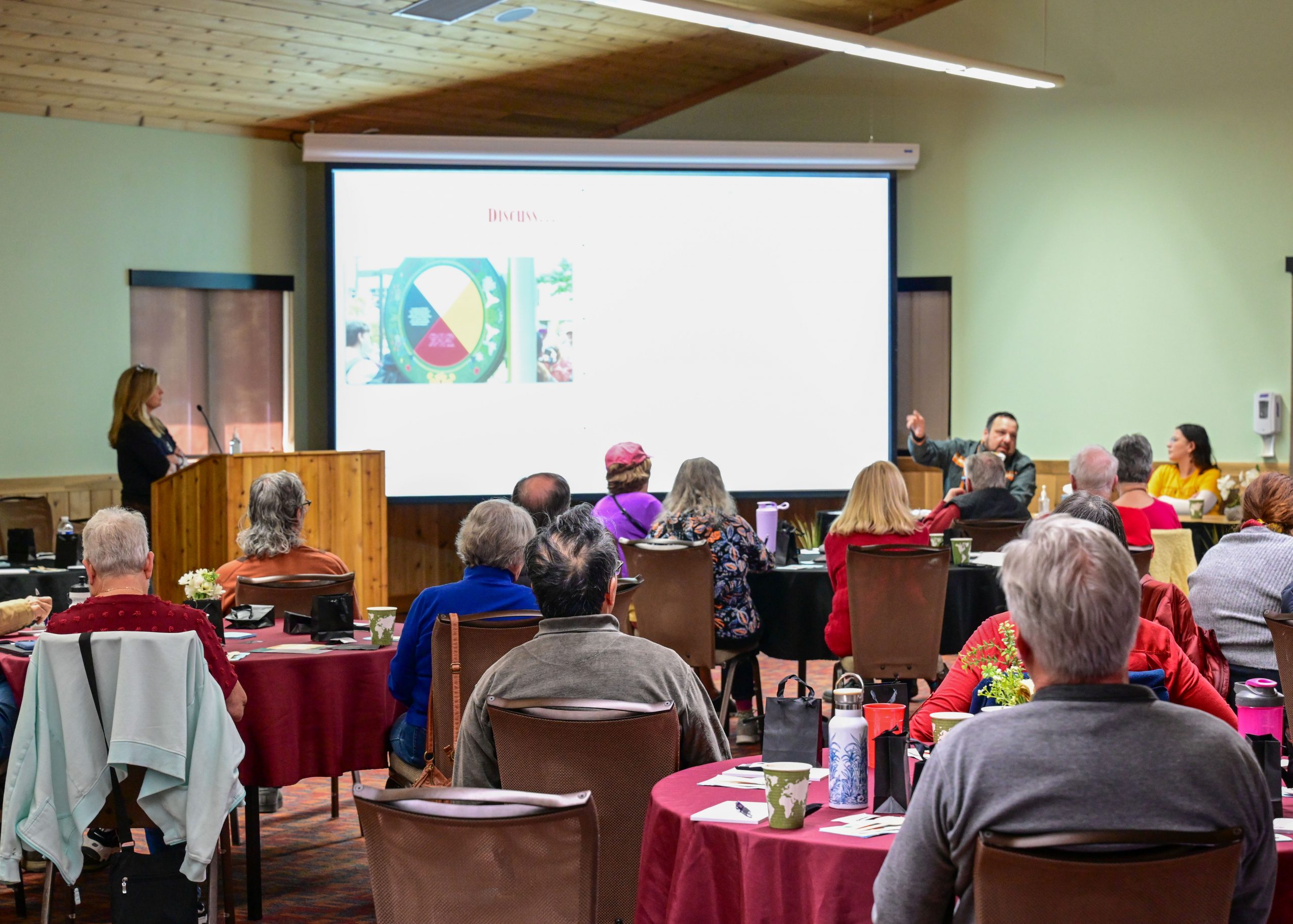
Participants were encouraged to conduct their own research to understand the history of the lands they inhabit and to establish connections with local Tribes. This process, the panelists noted, should not be about asking tribes to write the acknowledgment for you but rather about starting a conversation and learning more about the Tribe’s history and culture.
Everyone on the panel agreed that land acknowledgment should be used as a means to start or advance a conversation.
“It’s not just a statement you say, and then you move on with your meeting. It’s something that you think about and take home with you for consideration, so you can really delve into whose land you are on,” said Wolverton.
It’s not enough just to write a land acknowledgment.
Bush went on to explain the importance of allyship from non-Natives. Just as important are the intentional actions, behaviors and practices taken to actively support Native American Communities, Cultures and traditional ways of life.
“With this increased interest in developing and presenting land acknowledgments, have you seen any changes because of this?” asked another participant.
Bush and Wolverton strongly agreed “yes,” and shared an example from a recent WMU fall homecoming football game, where students from NASO were asked to provide support with the delivery of a land acknowledgment during the opening ceremony.
“It was such a momentous, historical moment for WMU and the Tribes from The Council of Three Fires because WMU had never before done a land acknowledgment during an official homecoming game,” said Bush.
Not only was the land acknowledgment read to a packed Waldo Stadium, but the football game was also kicked off in a good way, including a traditional Drum Welcoming Ceremony and Tribal leaders were present to honor our Ancestors and speak on behalf of local Tribes.
This effort exemplifies the meaningful engagement and consultation with Indigenous communities that is central to carrying out a land acknowledgment. Bush hopes this move will be just the first of many on the road to incorporating land acknowledgments into even more WMU events.
One of the biggest hurdles many face when forming a land acknowledgment is this notion of “settler’s guilt/virtue signaling.” Non-Natives may feel this act of acknowledgment is “minimal” or “not genuine,” which is a false assumption.
“As an Indigenous person, a person who works for a Tribal Government and is a leader within his Community, I look at those land acknowledgments as an opportunity to engage in conversations,” said Morseau. “It doesn’t just start and end with the land acknowledgment. It’s an opportunity for me to build relationships and have conversations about what actions they are taking to bring awareness and acknowledge the Ancestors who once occupied the land.”
In closing, NHBP Tribal Member and Food Sovereignty Coordinator Nickole Keith presented on the importance of food sovereignty within the NHBP Community.
As Keith shared how displacement due to colonization played a significant role in disrupting the diet and health of Indigenous People, NHBP Tribal Members who are part of the Nnoshé {Auntie} Program, served guests samples of sacred foods including Strawberries, Wild Rice Salad, 3 Sisters Soup, Venison Sweet Meat, Salmon and Porcupine Meatballs made from bison.
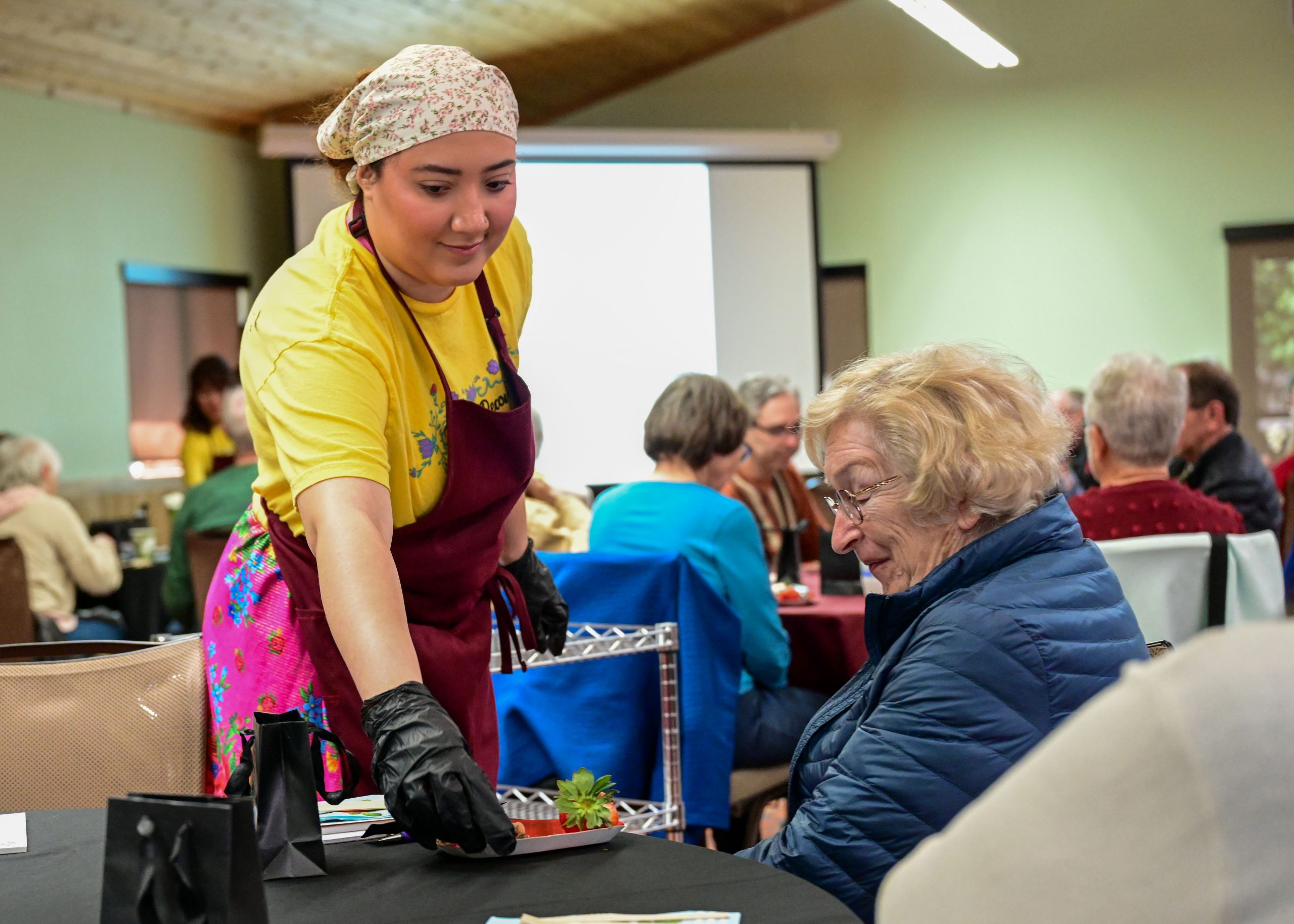
In the end, participants filed out of the Pine Creek Community Center with full bellies and many great takeaways to ponder. The message that panelists hope remains front and center: “Keep the conversation going- wherever you go!”
View the photo gallery HERE.

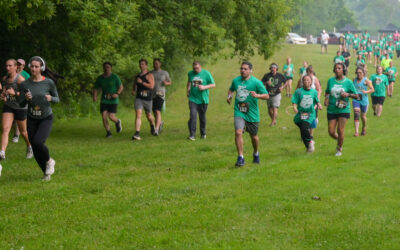
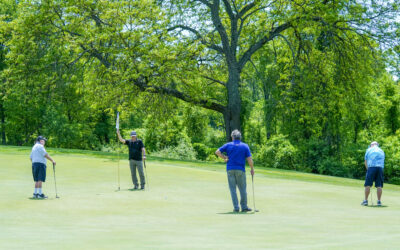

0 Comments